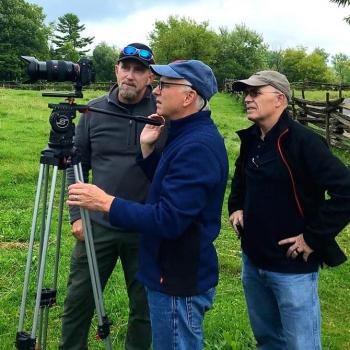Editors' Note: This article is part of the Patheos Public Square on Homeschooling and Public Education. Read other perspectives here.
I was homeschooled in a Christian home from kindergarten through high school. Several years ago, I helped found the Coalition for Responsible Home Education (CRHE), a 501(c)3 national nonprofit organization that advocates for homeschooled children. Along with a group of fellow homeschool graduates, I issued a call for greater oversight of homeschooling in order to protect children's interest in receiving a quality education in a safe home environment. When I was asked by Patheos to contribute a piece for this forum, I thought of the opposition to oversight that we often encounter from Christian homeschooling parents. These parents argue that oversight would violate their religious freedom, or that oversight is unnecessary. I want to take a moment to explain why oversight of homeschooling is so important, and how I came to support it.
I did not initially support oversight of homeschooling. As a child, I grew up hearing that homeschoolers scored far above average on standardized tests, outperforming their public schooled peers in every area. During graduate school, my perspective shifted. First, I wrote my master's thesis on the history of a local homeschool community. As I did so, I learned that the studies that purported to show sky-high homeschool test scores used volunteer samples that were not representative of the overall homeschool population (for more on homeschool academics, see here). Second, one of my younger brothers got me in touch with a teenage friend in need, hoping that maybe I could help her.
Like my brother and me, Ashley was from a homeschool family actively involved in a local church. Unlike us, she was severely educationally neglected. She knew that she was far behind where she should be academically. She knew that, like her older sister, she would receive no documentation of having received an education, no diploma or transcript, when she turned eighteen. She was desperate to go to college, but getting there looked impossible. I was horrified that a method that had served me so well could fail her so utterly.
I did some research and learned that in my state, Indiana, the only way to report educational neglect in a homeschool setting was to call social services. I already knew that no one checked on homeschooled students' progress; my mother had never had to show anyone proof that she was educating me and my siblings. I gave Ashley what advice I could about education and college, and then I made the call. I did not, at that time, find out what came of the call, but learning about Ashley's situation and seeing what little could be done about it was my first wake-up call that something was not right. It was then that I saw that in my state, and in many others as well, the law failed to ensure that homeschooled students receive even the most basic education. As a homeschool graduate, that felt personal.
Some years after this, I ran into Ashley while visiting my hometown. I told her about the call I had placed and asked whether social services had ever visited. She told me that a social worker had come and spoken with her parents, and that things had gotten better after that because her parents realized they weren't infallible. She also told me that her parents had since moved to Tennessee, which does have oversight requirements, and that her younger siblings were receiving an education she could only have dreamed of. She told me one final thing, something that has stuck with me since that conversation. She said that that social services visit had meant the world to her, because it meant someone had cared enough about her to place a call. She hadn't known anyone cared that much.
Ashley is not alone in her experience. Over the years I've spoken with scores of homeschool graduates who experienced educational neglect or child abuse that went undetected, leaving deep scars and limiting their options: Caitlin T., Lana Martin, Jamie G., Kierstyn King, Jessica A., Bethany Brittain, Chandra B., Jerusha Lofland. Many of these individuals turned eighteen so behind academically that they had to spend years getting a GED or going to community college to catch up. Many, too, struggle with the fallout of growing up in homes characterized by explosive anger, homes where they felt invisible, or unwanted, or unloved, often without anyone to reach out to. And yes, these too were Christian homes. I mention this not to suggest that educational neglect or child abuse are more common in Christian homes than in others, but because many Christians want to see educational neglect and child abuse as things that happen elsewhere, and not in their own communities.




